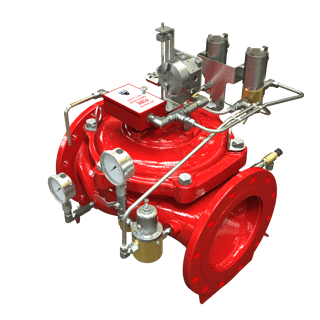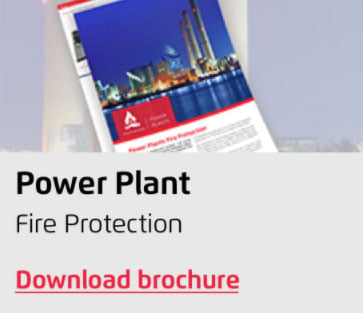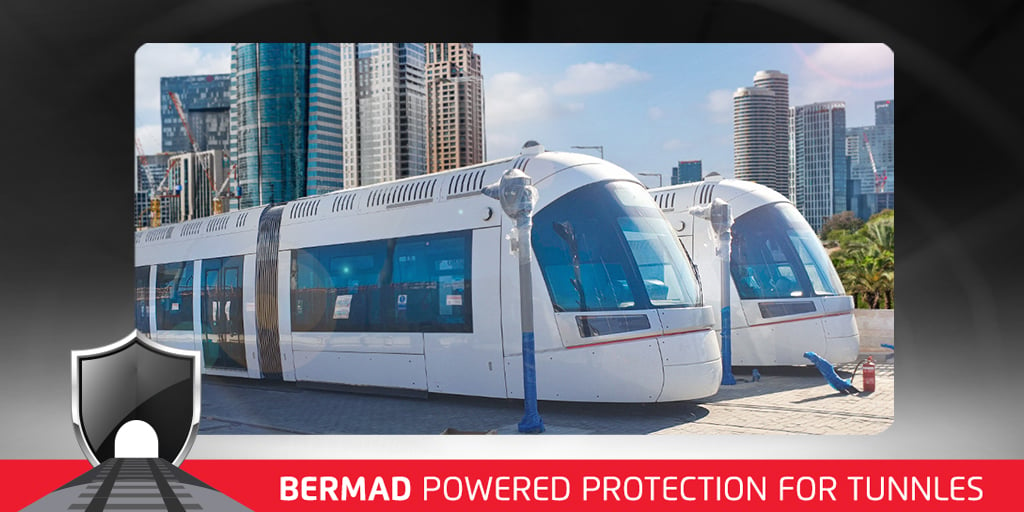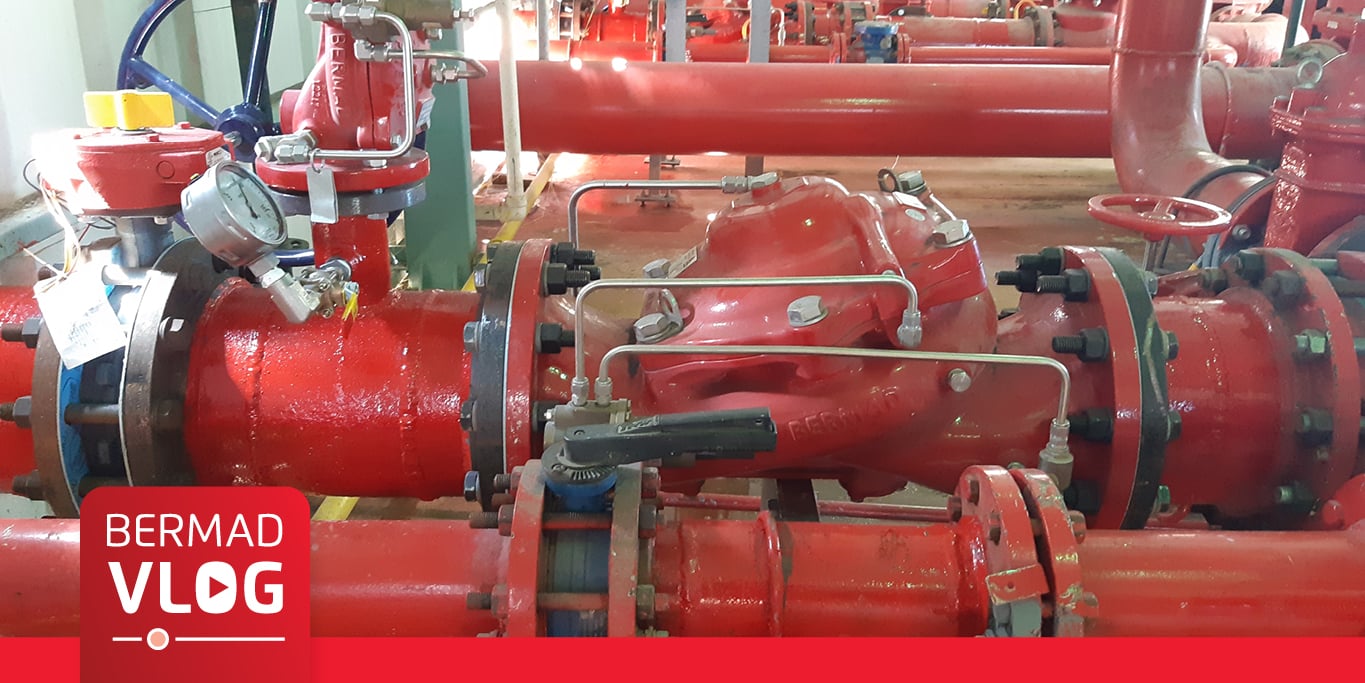The Tempa Rossa project is a newly developed oilfield situated in the Sauro Valley of the Basilicata region of southern Italy. The project is jointly owned by Total E&P Italia, Shell, and Mitsui E&P Italia. It was discovered in 1989 and brought into production in 2016. The oilfield is estimated to contain total reserves of 200 million barrels of high quality crude oil, with an anticipated peak daily output of 50,000 barrels. Natural gas, LPG, and sulfur are also being produced.
The Tempa Rossa project is being developed in three stages: one offshore and two onshore facilities. Once fully completed, the project will include 8 production wells, an oil processing center, an LPG storage center, and service infrastructure for access, transport and distribution.
The Challenge
While all hydrocarbon-producing facilities require a high level of fire protection, the location of the Tempa Rossa project makes fire safety an especially high concern. The Basilicata area is renowned for its beautiful landscapes and archeological significance, and tourism is an important part of the region’s economy. Therefore the project owners have placed a high priority on safety in order to respect the environment around the oil facilities. This requires that all components of the fire protection system be vetted for high reliability and lightning-quick response, for the highest protection against damage in case of a fire event.
A fire protection system in a hydrocarbon plant is like the proverbial chain: it is only as strong as its weakest link. In fire protection, valves are often the “weak link” in the system. Mechanical failure, poor flow capacity, sluggish actuation, or other issues can delay or prevent a valve’s proper functioning, with potentially disastrous results. The challenge for the Tempa Rossa project was to select a valve model with the lowest potential for possible failure, in order to ensure proper fire protection for the life span of the project.
The BERMAD Solution
 Tempa Rossa’s fire protection system calls for a total of approximately 150 deluge valves between the three facilities. Originally, a different, competing model of deluge valve had been specified. However, when the design team became aware of the BERMAD Torrent deluge valve as an option, they decided to consider it.
Tempa Rossa’s fire protection system calls for a total of approximately 150 deluge valves between the three facilities. Originally, a different, competing model of deluge valve had been specified. However, when the design team became aware of the BERMAD Torrent deluge valve as an option, they decided to consider it.
Many deluge valves on the market are fully mechanical. It’s possible in such valves for the moving parts within to bind and stick, especially as they age. This is primarily the case where the addition of water to the friction present between moving parts can cause the valve to fail. In contrast, the 400 series Torrent valves are fully elastomeric. They have no mechanical moving parts, and virtually zero friction—thus greatly reducing potential for failure and resulting in a safer system design overall.
The 400 series valves also offer the advantage of an increased diaphragm area, opening in 0.3 - 0.7 bar instead of 1.5 - 2.5 bar. This results in improved valve sensitivity and the ability to respond at much lower pressure, for far quicker response in an emergency—a quality highly desired by the client. The 400 series are available with the option of including a pressure control pilot through which the outlet pressure can be adjusted.
BERMAD places a high priority on protecting the customer and creating the most efficient solution. This is accomplished not just through providing quality products, but thorough analysis of a client’s need in any given situation. For this project, the BERMAD team recommended going with pressure-to-open concentrated valves rather than the originally specified pressure-to-close valves. This configuration will avoid the problem of losing costly foam concentrate through the valve in the event of power failure—an undesirable scenario, not just because of the unnecessary expense, but also because of the risk not having concentrate, in case of fire!!!
The BERMAD team supplied the 16” Nickel Aluminum Bronze FP-400Y-3DC Torrent pressure control deluge valve for this project. This valve is specially designed to pass high flow with low pressure loss. The pressure control option on the 400 series valves includes a pressure control pilot. When outlet pressure is set to a specific level, the pilot valve keeps it stable regardless of changes in system flow or inlet pressure. Combining the deluge and pressure control functions into a single valve increases safety and reliability, as well as decreasing total system cost. The combined valve is also a space saver.
BERMAD worked closely with the project team to adapt the valve’s specifications to the specific needs of the client. For example, the project owners requested redundant electrical activation to achieve the highest level of safety. This request was easily accommodated using 2 different solenoid valves with the highest SIL (Safety Integrity Level) - SIL4. Seawater-resistant valve materials were also supplied for the offshore facility.
In the other phase of the Tempa Rossa project, BERMAD FP-400Y-3UH Deluge valves were specified, along with FC-700E-5X-BO double chambered foam concentrate valves. By client request, two parallel deluge valve systems were installed to provide system redundancy. However, only one foam system is present. The foam valve is activated automatically by the deluge system. Its control trim is activated by water, reducing the need for foam concentrate as an operating fluid. This valve is designed to be highly sensitive in order to attain optimally rapid reaction time of the foam mixture.
Results
In the end, each of the three contractors in charge of the three phases of the Tempa Rossa project independently decided to go with BERMAD 400 series valves over the competition. This choice of valve offers the greatest fire protection system security and reliability available on the market today, for greater peace of mind and minimal risk to the project owners. The valves’ ease of maintenance, durability and in-line serviceability will also result in decreased maintenance costs over the expected 30 year life span of the project.












